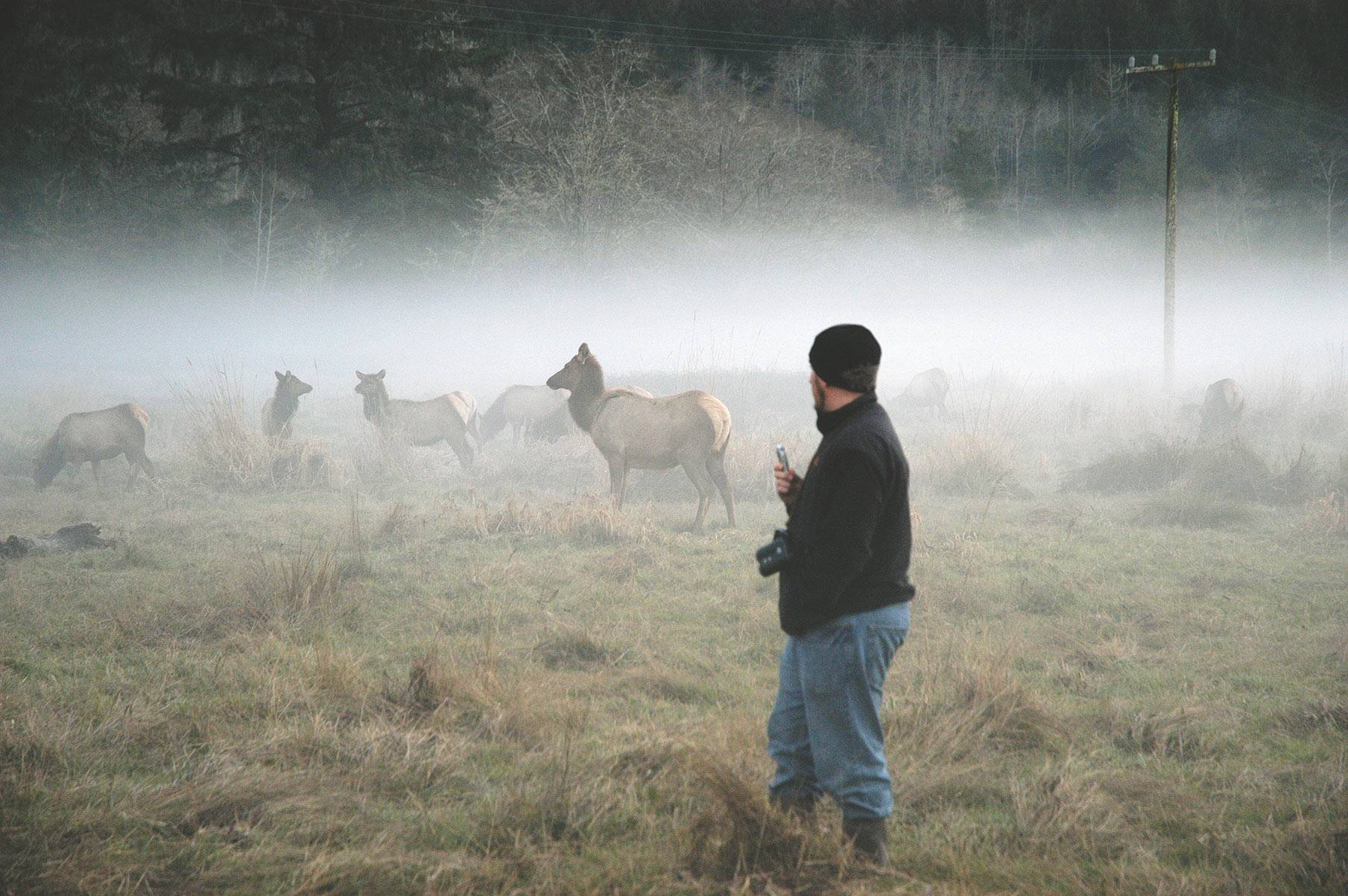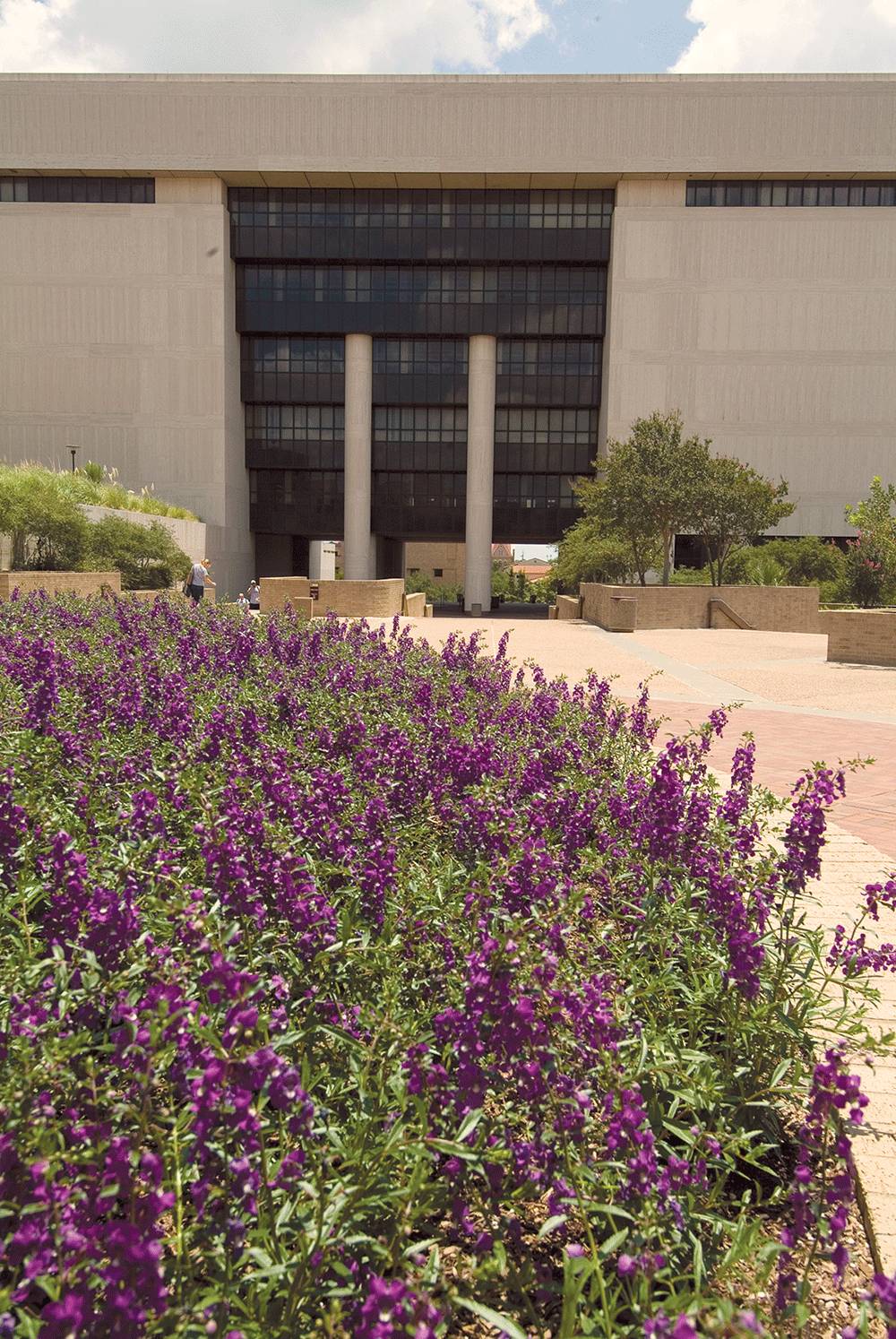Wildlife Ecology (M.S.)
M.S. Wildlife Ecology

Program Overview
The master’s program in wildlife ecology at Texas State University has a long history of cooperation with agencies such as Texas Parks and Wildlife Department, U.S. Fish and Wildlife Service, and non-governmental organizations, providing students with access to contemporary wildlife research and potential employment opportunities.
Course Work
The master of science in wildlife ecology is a thesis-based degree with an emphasis on the application of ecological principles to studies in the fields of wildlife ecology and natural resource management. The degree requires a minimum of 30 credit hours including core courses in statistics and experimental design, elective courses in the student’s area of interest, seminars, and thesis courses.
Research options include but are not limited to the following:
- large mammal behavior, ecology, and genetics
- threatened and endangered species ecology and conservation
- ecology of turtles
- toad biology
- bat ecology
- disease ecology
- population sampling and estimation
- population persistence and viability
- community ecology
| Degree | Hours | Thesis Option | Minor Option | Location |
|---|---|---|---|---|
Degree M.S. | Hours 30–31 | Thesis Option Thesis | Minor Option No minor | Location San Marcos |
Program Details
Students can take advantage of the excellent research opportunity to study wildlife in Texas and beyond due to the worldwide reach of Texas State faculty research.
Program Mission
Wildlife ecology, as an area of study and concern, has grown in the U.S. and Texas over the last 50 years to play a major role in developing decisions on land and water use, wildlife populations, and recreation. Wildlife issues are no longer confined to hunting, fishing, and agricultural pursuits, but also encompass much larger issues in energy sources, urban and suburban development, overpopulation of some species, threatened and endangered species, water use, and availability, and coastal development, among others. Nowhere is this more pronounced than in Central Texas. The Wildlife Ecology program aims to find solutions to these issues.
Career Options
Graduates of the master of science (M.S.) degree have pursued doctoral degrees or obtained employment in a variety of professions. Examples include employment as biologists with state and federal resource agencies, non-governmental agencies, and environmental consulting firms. Graduates have also pursued careers in education as high school biology teachers or instructors at community colleges.
Program Faculty
The research interests of the wildlife faculty are diverse, spanning such fields as disease ecology, genetics, and systematics, landscape ecology, vertebrate population ecology and management, parasitology, resource selection, estimating demography, and abundance of populations. Many studies are conducted on terrestrial vertebrates: mammals, birds, and herpes. Some faculty study invertebrate and aquatic vertebrate species that are species of concern or listed as threatened or endangered.
Contact us for general questions about your application, funding opportunities, and more. If you have specific questions after reviewing the program details, contact the program's graduate advisor.
Graduate Advisor
Dr. Sarah Fritts
s_f200@txstate.edu
512 245 3814
Supple Science (SUPP), Room 240

Apply Now Already know that Texas State is right for you?
Application Deadlines
| Deadlines | U.S. Citizen | International |
|---|---|---|
Deadlines Fall - Priority | U.S. Citizen February 1 | International February 1 |
Deadlines Fall - Standard | U.S. Citizen June 15 (*Flexible) | International June 1 |
Deadlines Spring | U.S. Citizen October 15 (*Flexible) | International October 1 |
Deadlines Summer I | U.S. Citizen April 15 (*Flexible) | International No Admission |
*This program’s deadline is flexible for those not requiring an F/J visa. A flexible deadline means applications received after the standard deadline may be reviewed on a first-come, first-served basis with no guarantees for admission consideration.
|
|
Funding Information Applications must be complete by the priority deadline to be considered for certain types of funding. |
|
|
Decision Timeline This program reviews applications on a rolling basis. |
Admission Requirements
The items required for admission consideration are listed below. Additional information for applicants with international credentials can be found on our international web pages.
-
Application
- completed online application
Review important information about the online application.
-
Application Fee
- $55 nonrefundable application fee
OR - $90 nonrefundable application fee for applications with international credentials
Review important information about application fees.
- $55 nonrefundable application fee
-
Transcripts & GPA
- baccalaureate degree in biology or related field from a regionally accredited university (Non-U.S. degrees must be equivalent to a four-year U.S. Bachelor’s degree. In most cases, three-year degrees are not considered. Visit our International FAQs for more information.)
- a copy of an official transcript from each institution where course credit was granted
- a 3.0 overall GPA or a 3.0 GPA in your last 60 hours of undergraduate course work (plus any completed graduate courses)
Review important information about transcripts. Official transcripts, sent directly from your institution, will be required if admission is granted.
-
Test Scores
GRE
- GRE not required
Approved English Proficiency Exam Scores
Applicants are required to submit an approved English proficiency exam score that meets the minimum program requirements below unless they have earned a bachelor’s degree or higher from a regionally accredited U.S. institution or the equivalent from a country on our exempt countries list.
- official TOEFL iBT scores required with a 78 overall
- official PTE scores required with a 52 overall
- official IELTS (academic) scores required with a 6.5 overall and
- minimum individual module scores of 6.0
- official Duolingo Scores required with a 110 overall
- official TOEFL Essentials scores required with an 8.5 overall
Review important information about official test scores.
-
Documents
- mentor recommendation letter from a current Texas State faculty member in the Department of Biology. Visit the faculty list for current faculty and their research interests and contact information. Your mentor must email their letter of support directly to Graduate Admissions. This letter must be on file before the program's deadline.
- Since admission to this thesis-/dissertation-based program requires an intent to mentor letter (an agreement from one of our faculty members to supervise your research project) as part of the application process, we strongly recommend that applicants contact potential mentors by sending their CV and research interests and securing that agreement prior to submitting an admission application. The department cannot guarantee that a suitable mentor will always be available.
- resume/CV
- statement of purpose describing your professional aspirations and rationale for pursuing graduate study
- three letters of recommendation addressing the substance and quality of your preparation for graduate study
Review important information about documents.
- mentor recommendation letter from a current Texas State faculty member in the Department of Biology. Visit the faculty list for current faculty and their research interests and contact information. Your mentor must email their letter of support directly to Graduate Admissions. This letter must be on file before the program's deadline.